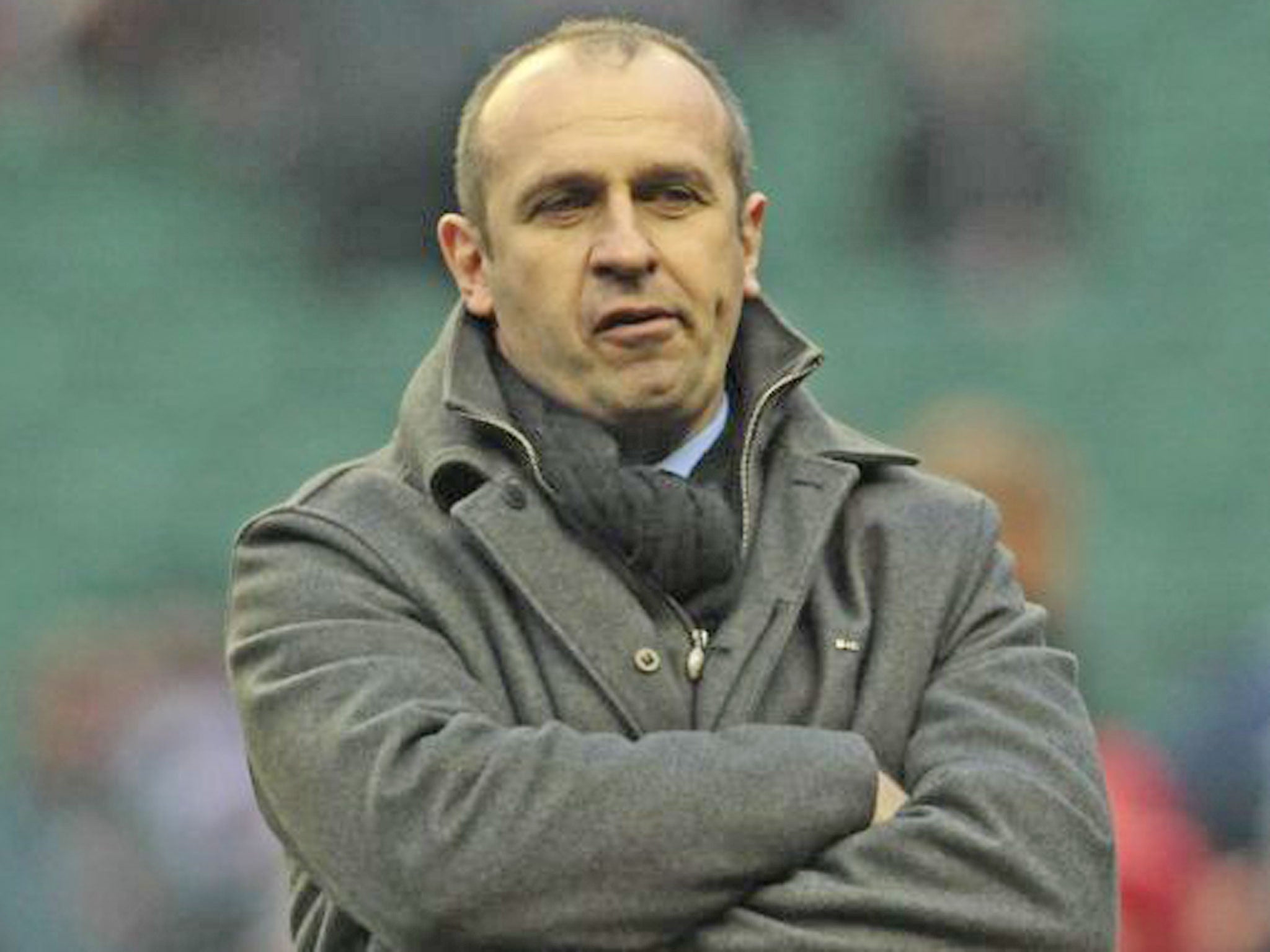The Independent's journalism is supported by our readers. When you purchase through links on our site, we may earn commission.
Saint-André baffled by the judgement of Joubert

Your support helps us to tell the story
From reproductive rights to climate change to Big Tech, The Independent is on the ground when the story is developing. Whether it's investigating the financials of Elon Musk's pro-Trump PAC or producing our latest documentary, 'The A Word', which shines a light on the American women fighting for reproductive rights, we know how important it is to parse out the facts from the messaging.
At such a critical moment in US history, we need reporters on the ground. Your donation allows us to keep sending journalists to speak to both sides of the story.
The Independent is trusted by Americans across the entire political spectrum. And unlike many other quality news outlets, we choose not to lock Americans out of our reporting and analysis with paywalls. We believe quality journalism should be available to everyone, paid for by those who can afford it.
Your support makes all the difference.When Philippe Saint-André said France "lost their lucidity and precision after 60 minutes and with it the game," he was in part criticising himself: the coach made his key substitution decisions either side of the hour mark, and they all went wonky on him. "I expected more from the players I sent on," he admitted. "That is true."
But Saint-André said other things, some in public and others in private, that opened up a whole new front in the whys and wherefores debate. He made it abundantly clear that the French lost something else during the course of events at Twickenham: namely, the last vestiges of their faith in Craig Joubert, the South African referee.
It was Joubert who left Les Bleus, then coached by Marc Lièvremont, in a state of advanced apoplexy over his handling of the World Cup final against New Zealand in November 2011. It was Joubert who flummoxed them with his decisions during the Six Nations match with Wales in Cardiff last season – a game the home side just about won, thereby completing a Grand Slam into the bargain. His performance on Saturday – not just his misreading of the confusing events leading to England's vital second-half try but also his general view of who was doing what to whom at scrum and breakdown – infuriated the Tricolores once more.
"We were penalised a lot, a lot, a lot," Saint-André complained, "and I don't know why. You have only to look at the way the England try was scored. I don't understand how a referee could accept it. If he didn't see exactly what happened, there are two touch judges on the line for him to consult. And in the tackle area? There were things that confused me. We had guys on the field who were fantastic at contesting the ball, but sometimes you are left wondering whether you need such people if they are not allowed to do what they are good at doing."
Saint-André could not say whether he would discuss Joubert's refereeing with the International Rugby Board. "I don't want people to think I am making excuses, so it is better to raise issues when you are winning," he said. "While we played well and were competitive for three-quarters of the game, we still lost and that is our fault – my fault. But it is frustrating to leave here not knowing why some things were decided in the way they were."
Joubert was not entirely one-sided in his miscalculations: he moved in mysterious ways throughout the encounter, performing very few wonders in the process. But even the England camp conceded they were lucky to see Tuilagi's try ratified and as the French were at their usual disadvantage on the language front – shamefully, few international officials show the slightest inclination to discuss matters with them in their own tongue – it was difficult not to sympathise with Saint-André.
There was another concern for the coach. Not for the first time of late, he bemoaned the ever-increasing volume of overseas players holding down starting places in the domestic Top 14 league. "We have very few outside-halves as it is, and now Jonathan Sexton [the Ireland No 10] and three or four others are coming to France," he said. "We have to be very careful with our league. We have to leave a little space for some French players."
It was a waspish comment from a coach in a waspish mood. Saint-André, a familiar figure to followers of English club rugby after productive spells with Gloucester and Sale, quietly acknowledged that his charges had performed at far higher levels than in their recent defeats by Italy and France, but that fact did not even begin to lighten his gloom. As one respected chronicler of the French game said as the coach headed for the door: "It is not appropriate to throw confetti at the cemetery gate."
Join our commenting forum
Join thought-provoking conversations, follow other Independent readers and see their replies
Comments